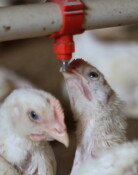Medical Service Act should be amended
Medical Service Act should be amended
Posted September. 26, 2023 07:54,
Updated September. 26, 2023 07:54
As the demand for nurses in local communities grows due to aging, 1,910 nursing public officials are affiliated with local governments across South Korea. This is the first time that the number of nurses working at the administrative welfare centers of local governments, not hospitals, clinics, or public health centers, was identified. These nursing public officials offer health consultations to local residents and carry out projects to manage and prevent chronic diseases. They also visit the medically vulnerable people who were discharged from hospitals but cannot afford caregivers or live far from hospitals.
However, due to the Medical Service Act that strictly regulates the work scope of nurses, those working at welfare centers play limited roles despite their large size. Under the current law, the work scope of nurses is limited to the “provision of assistance in medical treatment under the guidance of a physician” at “medical institutions.” Even when disinfecting patients with bedsores, removing sputum, or changing bags for urine and feces, they must risk punishment. Even for simply measuring blood pressure or blood sugar, they used to transfer patients to public health centers due to the risk of violating the law until the Ministry of Health and Welfare made an authoritative interpretation in the first half of this year that nurses can independently perform such activities, leading to the enormous amount of inefficiency.
As the elderly population surges, the share of chronic patients who can recover is growing. There are already over nine million people aged 65 in the country, and four out of 10 one-person households are aged over 60. While the population structure and diseases are experiencing changes that increase nursing demand outside hospitals, such as at elderly welfare centers or homes, the Medical Service Act, which limits nurses to simply assisting roles and is centered around physicians, has been the same for 61 years. Due to the law that has not caught up with changes in medical demand, both patients and nurses are experiencing inconvenience and wasting medical expenses.
Even those who opposed the implementation of the nursing act, which was discussed in June this year, agreed with the bill's intention, which was to expand the work scope of nurses in response to the aging society. In communities without doctors, the work scope of nurses has been expanded beyond caring by replacing physicians. While the Ministry of Health and Welfare opposed the implementation of the nursing act on the ground that it would weaken the foundation of the Medical Service Act system, it promised to readjust the work scope of nurses by amending the existing act. South Korea will enter the super-aged society in which those aged over 65 take up more than 20 percent of the entire population. The implementation of a law to efficiently utilize nursing resources should be hurried to ensure tailored healthcare services in local communities.
Headline News
- Joint investigation headquarters asks Yoon to appear at the investigation office
- KDIC colonel: Cable ties and hoods to control NEC staff were prepared
- Results of real estate development diverged by accessibility to Gangnam
- New budget proposal reflecting Trump’s demand rejected
- Son Heung-min scores winning corner kick







